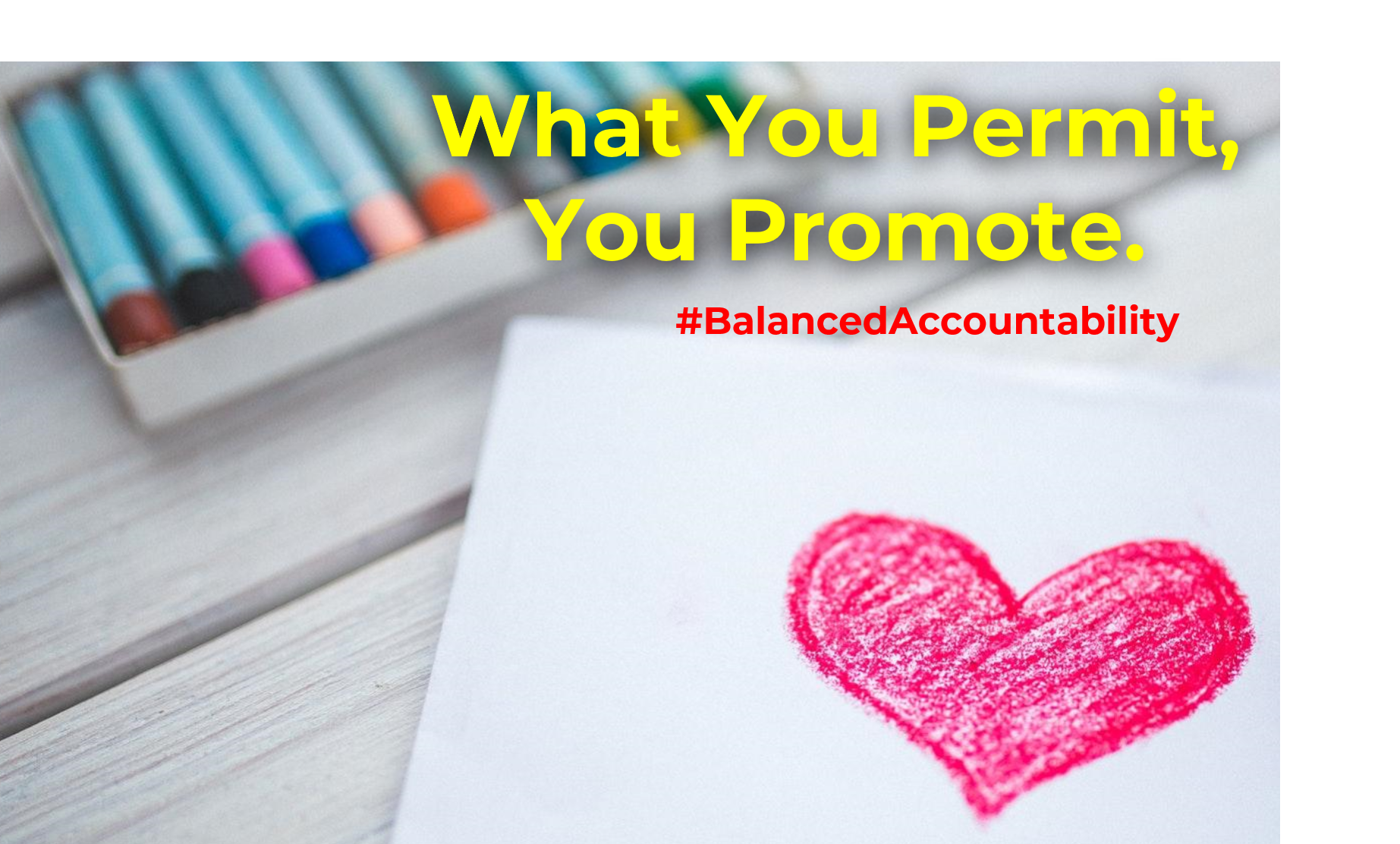How do you work best in a team? INSPIRE TEAM-WIDE ENGAGEMENT THROUGH CLEAR EXPECTATIONS

Inspire Team-Wide Engagement Through Clear Expectations
Get Your Free Checklist to Creating Peer-to-Peer Accountability
How to Win Your Employees’ Hearts by Raising Their Standards
You can’t hold someone accountable for something they’re unaware of. It’s surprising how often leaders actually do this. Before you think you’re excluded, stay with me.
When my wife and I bought our first home, we went to Home Depot to buy some plants for our new backyard. While I was perusing, I felt a sharp pain in the back of my leg. I turned around and saw my assailant: a child no more than three years old. He had pushed a shopping cart right into me. His father came running over, mortified, and apologizing. It left a mark and caused my leg to bleed and I couldn’t get mad. This kid had likely never learned that slamming shopping carts into other people isn’t ok. He wasn’t being disobedient or reckless. He was trying a new experience, and unfortunately for me, it wasn’t his best moment. But I couldn’t feel anger – he had no idea what he was doing.
Your employees aren’t much different. They’re always on the lookout for cues on what they should be doing. Without voicing your expectations, you shouldn’t consider them established. Consequentially, you can’t be mad or surprised when they go unmet by your staff. If you haven’t thoroughly trained someone, how can you hold them accountable?
What you Permit, You Promote
This is why personal accountability is paramount for effective leadership. You have to level-up your own game before you can ask your staff to make any changes. Your efforts will go nowhere if you’re caught holding your employees to a higher standard than yourself. For example, getting to work on time. If you’re often late, you’re setting the expectation that tardiness is tolerable. Exhibiting poor behavior is promoting poor behavior. As the leader, you may feel like you should be able to roll in whenever. But you never know what your employees have ingrained in them about punctuality. If you don’t tell them to prioritize promptness, you cannot fault them for making their own time.
I’ve lead thousands of people in my career, and unmet expectations is always a theme. Common complaints I hear from leaders about their staff include but are not limited to:
- Using inappropriate language
- Missed deadlines
- Lack of engagement during meetings
- Tending to personal matters while working
- Unprofessional appearances
These are all issues stemming from poor communication from the leader. But why state the obvious when it comes to abhorrent behavior? Consider the study guide provided for the Canadian citizenship test. It notes that violations such as spousal abuse and gender-based violence is unacceptable. Canada doesn’t take for granted that people will identify these as punishable acts. And what does Canada lose by stating it? Half an inch of space on a PDF? What you have to gain from effective communication will also outweigh what you have to lose.
Leadership to Mentoring
How a leader handles an unmet expectation speaks to the control they hold. A great leader coaches where a struggling leader will punish. A “gotcha” manager is an unsustainable manager. That is begging for a team without loyalty or dedication. If you’re only catching people when they’re doing something wrong, you’re not getting the most or best out of your employees. Help them well before it reaches that point by giving them the instructions they crave.
As a leader, it’s up to you to set expectations among your team. From each recruits’ first day to an existing employee’s tenth year in. It’s never too late to turn your wayward staff into a dream team. In a study by from Florida State University, shows that curated work-goals (self-assigned or provided) can increase employee productivity even without monetary incentives. Reaching for a target allows them to be more productive. They’ll also come to view you as a driving force for their improvement. In other words, you’ll win their hearts and raise their standards all in one go. That’s how you go from becoming a Leader to becoming their Mentor.
Get Your Free Checklist to Creating Peer-to-Peer Accountability
About the Author:
Hernani Alves is an Amazon best selling author, international speaker, and consultant with over twenty years of business experience as a Sales Executive for a $3 Billion Company. He’s the founder of Balanced IQ, a company that helps leaders build world-class teams focused on getting sustainable results in varying economic climates.
In his book, Balanced Accountability: Three Leadership Secrets to Win Hearts and Maximize Performance, Alves delivers a newfound clarity on the case for accountability and the steps organizations, and individuals need to take to unleash their potential. He reveals the frame work needed to improve accountability in the workplace to win hearts and maximize performance.
Get Your Free Checklist to Creating Peer-to-Peer Accountability
To connect with Alves, visit his Website, LinkedIn Profile, Facebook or Amazon
See on Linkedin: https://www.linkedin.com/pulse/inspire-team-wide-engagement-through-clear-hernani-alves/
What can I do to be a Better Manager? 3 Ps of Accountability

Lead by example to help reshape the future of your employees
Predict the Future
Abraham Lincoln said the best way to predict your future is to create it. One of the United States’ greatest presidents acknowledged that everyone is in control of their own destiny. Lincoln faced one of the biggest challenges of any president: slavery. With such a harshly divided nation, he could have easily become defeated by the challenges he faced. Instead, he did what all phenomenal leaders do—he led by example. Because of his leadership, the inhumanity of slavery was contained. He created a new reality, a new destiny. Today’s business leaders must also lead by example with the three Ps of accountability.
1. Personal Accountability
It’s easy to get caught up in deadlines and forget that work is a personal experience. Many people spend more time at work than anywhere else. When you spend this much time somewhere, the environment is bound to rub off on you. The sheer amount of time involved is why company leaders influence is so impactful.
Your employees are watching you, and they are mimicking what you do. As such, it’s important to hold yourself accountable before you can expect to hold others accountable. Make yourself better first so that you can lead by example. This is difficult, as it requires self-awareness, which doesn’t come naturally to most of us, but is essential.
Leaders must also understand themselves before they can successfully lead others. If you take the victim stance, your employees will too, and then they’ll be harder to lead. Have a hero mentality in front of your employees and be open to their feedback about how you can improve as a leader. Ask them, “What would you like me to do more and less of as a leader?” Then, listen and take action.
2. Positive Accountability
Positivity isn’t about being a cheerleader about every situation. Employees can see through a false demeanor or sugar coating a bad situation. Positivity is an overall attitude and approach to managing. It’s about catching employees doing things right.
See the best in a situation and inspire your workers to do the same. This relates back to your personal touch in personal accountability. If you’re not portraying positivity, your employees can’t mimic it.
Watch the language you use, as well. Even something as simple as an email explaining an update to the company’s insurance plan is an opportunity for spreading positivity. For example, if your company’s plan has recently added a free yearly dental cleaning for its employees, don’t just make “Changes to your dental insurance plan” as your email subject line. This vague statement could send employees into a panic about what may now not be covered that once was. And this will be especially worrisome for someone facing a painful procedure like a root canal.
Instead, make the subject line positive instead. Replace the word “change” with “improve.” For example, “Improvements to your dental insurance plan.” It seems minute and perhaps trivial, but building up small messages of positivity such as these set a tone for your workforce. The word change tends to make people think negative at first when it truly means improvements.
3. Performance Accountability
This is more in line with most people’s understanding of accountability—hauling someone up for their actions, discipline or performance reviews. You can’t skip this part, but you can’t reach it without the first having both personal and positive accountability.
Once you build personal relationships and set a tone of positivity, your employees respect you and may want to hear your feedback about their performance. Wanting to please authority figures you admire and trust is human nature.
The real job of a boss is coaching. It’s not about being a pushover—you must be firm about unforgivable grievances. But you must also look for opportunities to build employees up and make them greater than yourself.
Once you put these practices in place, you’ll build a team of engaged, positive-minded employees who come to work looking for ways to make their employer happy. The bottom line of needing to work for income will always be there, but added to it will be purpose and true enjoyment of their work and colleagues.
Get Your Free Checklist to Creating Peer-to-Peer Accountability
About the Author:
Hernani Alves is an Amazon best selling author, international speaker, and consultant with over twenty years of business experience as a Sales Executive for a $3 Billion Company. He’s the founder of Balanced IQ, a company that helps leaders build world-class teams focused on getting sustainable results in varying economic climates.
In his book, Balanced Accountability: Three Leadership Secrets to Win Hearts and Maximize Performance, Alves delivers a newfound clarity on the case for accountability and the steps organizations, and individuals need to take to unleash their potential. He reveals the framework needed to improve accountability in the workplace to win hearts and maximize performance.
To connect with Alves, visit his Website, LinkedIn Profile, Facebook or Amazon
Link: https://www.constructionbusinessowner.com/management/be-better-manager-3-ps-accountability
How do you write a New Year’s resolution? Making a Resolution and Sticking to IT (No Really?)

Three tricks for achieving your New Year’s resolution withbalanced accountability

By Hernani Alves: As seen in Professional Car Wash Magazine
Setting a goal for the New Year may feel like manifesting the new you. Who is not trying to get promoted, eat healthier, spend more quality time with family and travel more? What makes us think that a magical switch goes off on Jan. 1st that will allow us to change? The expectation is far-fetched, and yet over 40% of Americans partake.
Don’t get me wrong — there is no shame in trying to change for the better, but we are failing to make it work. It can be demoralizing. It is no wonder that New Year’s resolutions have an 80% failure rate. It is time to change this and make it an 80% success rate.
Balanced accountability
New Year’s resolutions have become ambitions without a plan. “Save money,” “get in shape” and “travel” were all top resolutions set by Americans in 2018. But what do those aspirations look like? The statements in themselves do not offer a starting place.
To achieve something, you need to have a path towards that goal. Like a map to your destination, you must be able to see where you are going — street names, landmarks and mile markers. In goal setting, your map is “balanced accountability.”
Balanced accountability is accountability that is fair and balanced. It uses clear expectations and firm rules weighed with praise and rewards. It guides you to where you want to go and keeps you motivated to continue. It is practiced by using what I call the 3Ps.
The 3Ps
I am proud to say that for the last three years, every member of my family has kept their New Year’s resolutions. We have done so with the 3Ps of accountability.
Personal accountability
To keep a resolution, it is crucial to hold yourself accountable. I struggled with this for years, but now I know exactly what this means and how to do it. Share your aspirations with friends and family. Ask for help, and be open about your successes and struggles. Give yourself the personal accountability that you need.
Positive accountability
How do you eat an elephant? One small bite at a time, and positivity is essential to staying driven. You need to celebrate the small accomplishments along the way to reaching your goal. Tell others when you have a win, and bring them in on your journey. Reward yourself.
Performance accountability
This is the traditional practice of “holding yourself accountable.” But it uses coaching, not penalizing. This is your starting point for mapping out the path to your objective.
Mapping out a resolution
In December 2018, my family wanted me to give blood as a way to help our community during the holidays. My blood type (O-) is always in demand, so my family insisted that I take action and help others. As much as I wanted to help out, I was apprehensive. I have never been good at giving blood — meaning I pass out. Even so, I agreed to try.
The blood drive was packed. It was great, and there were so many people there ready and willing to give. When the facilitators of the drive noticed my blood type, they pulled out the VIP treatment. I was moved to the front of the line, and they only took about three minutes to prepare for my blood draw. On the first attempt, they missed the vein, and I started to get woozy — right on cue. They had to stop the process and send me home as a “pre-fainter.” At that moment, I resolved that in 2019, I was going to do something I had never done before: donate blood at least five times.
The sentiment was great but a little unclear. What did I want? To give blood once that year, no matter what? To teach myself how to give blood without passing out? To give blood every other month? I was not going to reach my goal without knowing what it was. How could I? Even if I found myself on a path, what was the likelihood of success if I did not know where that path lead?
This is not a new question or concept. In 1979, interviewers asked new graduates from Harvard’s MBA Program, “Have you set clear, written goals for your future and made plans to accomplish them?” Only 3% had clear, written goals and plans. Ten years later, they interviewed the same graduates and found that the 3% with clear goals made, on average, 10 times more than the other 97%.
I needed to organize my plan, and I did so by using SMART goals.
SMART goals are the following targets for reaching your aim:
- Specific: Succinctly described
- Measurable:Attached to numbers
- Achievable: Realistic
- Relevant: Focused on a result
- Time-bound: Attached to a specific deadline.
Now I had somewhere to go. I rewrote my resolution: To give blood five times within 2019, or once every 10 weeks until I reached five. Science only allows me to donate blood every eight weeks.
Here, we have all of the SMART goals represented:
- To give blood (specific, relevant)
- Five times (measurable)
- Within 2019 (achievable)
- Twice every 20 weeks until I reach five (time-bound).
By mapping out a plan, I was able to visualize exactly what it would look like to realize my ambition. By organizing the resolution into quarterly parts, I gave myself plenty of time to reach my goal. Remember, a New Year’s resolution is something you want to achieve throughout the year, not in January. Do not set yourself up for defeat with a haste-focused mentality. You have 12 whole months to work with. Remind yourself it is not a sprint; it is a marathon, and that is how you will create healthy habits.
How to stick to it (no, really?)
Now that you know what targets to hit, you need to know what you are getting into. Say, for example, you want to quit smoking. You have to decide what method you are going to use, what you can expect and how to combat cravings.
For my resolution, I needed to figure out how to stop passing out. I took some time to read about why people pass out when giving blood and what I could do to combat it. I learned to stay hydrated, drink more water on donation days, get enough sleep, etc.
When it was time to meet my first quarterly goal, I practiced what I had learned and hoped it would work. The result? I stayed conscious the whole time. Afterward, I celebrated my win with a Double-Double Hamburger with Animal Fries at In-and-Out Burger.
I am proud to say that in 2019, I kept my resolution to give blood at least five times. All it took was a little bit of planning and visualization.
As you settle into 2020, consider a New Year’s resolution that you have always wanted to achieve. What was holding you back? Did it have a metric? Could you measure your success through SMART goals? It is never too late to try again. After all, you have an entire year to work with. No one ever reaches their aspirations easily or without a struggle. But, by using balanced accountability and the 3Ps, you will be able to set yourself up for success instead of failure.
Whether you’re applying a New Year’s resolution for your personal life or your business, it’s always important to plan, prepare and follow through. Like Abraham Lincoln said, “The best way to predict the future is to create it.” With a clear vision of your future, you will know exactly what steps to take to get there. Happy New Year, and enjoy the journey.
Get Your Free Checklist to Creating Peer-to-Peer Accountability
About the Author:
Hernani Alves is an Amazon best selling author, international speaker, and consultant with over twenty years of business experience as a Sales Executive for a $3 Billion Company. He’s the founder of Balanced IQ, a company that helps leaders build world-class teams focused on getting sustainable results in varying economic climates.
In his book, Balanced Accountability: Three Leadership Secrets to Win Hearts and Maximize Performance, Alves delivers a newfound clarity on the case for accountability and the steps organizations, and individuals need to take to unleash their potential. He reveals the frame work needed to improve accountability in the workplace to win hearts and maximize performance.
To connect with Alves, visit his Website, LinkedIn Profile, Facebook or Amazon
Get Your Free Checklist to Creating Peer-to-Peer Accountability
